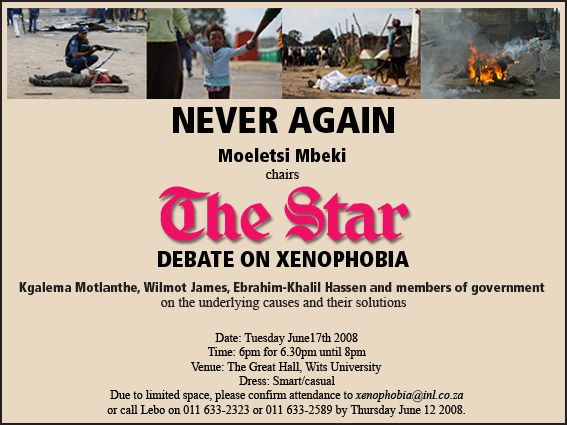TINO LA MUSICA (Working Title)
Film By Camera/Director Kyle O’ Donoghue and
Dylan Valley and producers Miki Redelinghuys and Lauren Groenewald from
Plexus Films.
Miki/ Plexus Films, Cape Town
Running time: 24 minutesThe film tells the story of Tino La Musica, a Congolese band based in
Cape Town. Their story starts as the band, all refugees from
Congo, play at their regular weekly gig at Club La Reference in Long Street Cape Town. They live and rehearse in a rundown block of flats in Gardens, but the mood is hopeful. Until suddenly they are evicted from their block of flats, a week before the countrywide xenophobic violence was to scatter and displace approximately 30 000 refugees around the country.
The double impact of these events cause the band to fall apart. Musicians have lost their home, their togetherness and even their instruments.
The film follows the story of Mohammed, the producer of the band, as he accompanies his sister to a community centre in Summer Greens, where she has found shelter for herself and her baby, Mohammed has found a temporary squat in a rundown building in
Woodstock, he doesn’t know where the rest of the band is. Gradually he goes in search of the band members, hoping that they can get together again to play their weekly gig.
He finds Tantino, the lead singer at
Cape Town station, selling cd’s. Mohammed convinces Tantino to sing something, but he stops after a short while, he cannot continue. Instead he leads the crew to a Congolese Cape Town, a make-shift mall offering everything from hairdressing to foreign exchange. The film continues to follow Mohamed as he looks for the rest of the band.
He finds Jino, a dancer, working on a construction site at the 2010 stadium in Green Point, Musa, the drummer, has taken a job as a security guard in Sea Point. Ironically the displacement caused by xenophobic attacks has caused these people previously earning a living from music gigs, to head into the job market as a means to survive. Mohammed is trying to muster up support from the group to perform again.
He is surprised to find the singer/dancer, Ladi, with a transformed appearance staying with Papi, the administrator of the band. Enthusiasm is low; Ladi has shaven his Big Star hairstyle and goatee, as a symbol of having left behind his old persona and Papi responds: “what we do best is singing and entertaining; now they just want us to die”.
The film follows their struggle to get it together again, searching for instruments and finding the will to sing and dance again. We hope the search will lead us to the missing guitarist, Zinga, who everyone lost contact with after the incident at DuNoon. He’s cell phone no longer works, so Mohamed will have to move from Refugee camp to camp to find him. He hopes he can have the group playing at Club La Reference again, and that they can continue building a future together.
The film is co-directed by Okepne Ojang, himself an immigrant from
Cameroon, living in
South Africa for the last 9 years. OJ himself is trying to find sense in all that has happened and trying to determine whether there is a future here for him and his South African wife and child. His presence and voice is felt in the film, as it is clear that his hope is tied in with the hope that Tino La Musica will play again.















